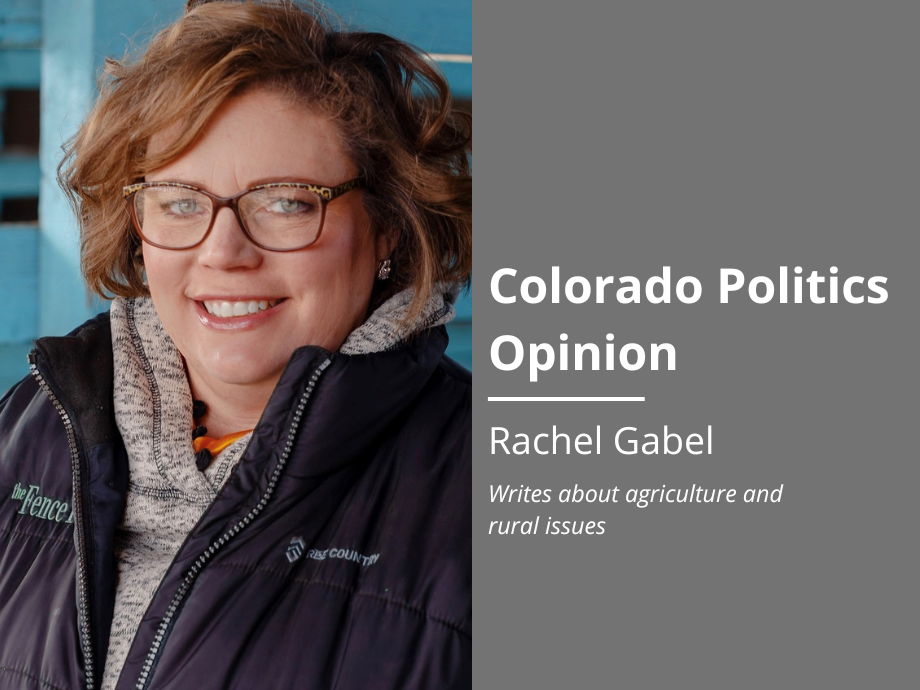Polis ponders what to do with wolves | GABEL


When Colorado voters approved a proposition to legalize marijuana, the legislature was tasked with penning the fine print to successfully enact the will of the voters. The governor at the time, John Hickenlooper, signed bills to regulate the drug including limits on blood levels when driving, limits on out-of-state resident purchases, taxation, licensing fees, inventory tracking, security requirements, waste disposal, packaging and even advertising. Years later, there seems to be no shortage of marijuana bills introduced with the legislature engaging with stakeholders, hearing public comment and passing bills that are the will of their constituents.
Wolf bills are no different. Though the Colorado Parks and Wildlife Commission was tasked with the final approval of the Colorado Wolf Restoration and Management Plan, legislators had to step in with bills to ensure the proverbial wheels don’t fall off the operation.
Western Slope legislators, who have heard more than an ear-full about wolves from their constituents, most of whom voted against the reintroduction, brought forward two reasonable bipartisan bills. SB23-255, Wolf Depredation Compensation Fund sponsored by Sen. Dylan Roberts, Sen. Perry Will, Rep. Julie McCluskie and Rep. Marc Catlin, creates a fund to compensate landowners and agriculture producers for depredation of livestock and working dogs by wolves. The bill keeps dollars in the fund, rather than allowing them to succumb to the “use it or lose it” ways of state budgets and allocations.
Stay up to speed: Sign-up for daily opinion in your inbox Monday-Friday
The wording of Proposition 114, which was approved by voters by the slimmest of margins, includes a subsection requiring livestock producers be paid fair compensation for depredation losses. The original wording includes reference to the Wildlife Cash Fund, but a dedicated depredation fund makes more sense. It’s a good bill, it passed through committee relatively easily, and Gov. Jared Polis will likely sign it.
I asked for a comment from his office, and on May 5 Conor Cahill, the governor’s press secretary said: “The Governor will review this bill just as he does all bills as it makes its way to his desk. The concept of the Wolf Depredation Compensation Fund seems to align well with the voter intent of Proposition 114, in its aim of ensuring that livestock owners are compensated for documented losses from wolves of livestock and livestock guard animals. Compensation amounts and evidence standards are based on the Colorado Wolf Restoration and Management Plan and accompanying regulations, unanimously adopted by the Parks and Wildlife Commission this week.”
Management of Gray Wolves Reintroduction, or SB23-256, may be the kicker. The bill prohibits the introduction of gray wolves into the state if the U.S. Secretary of the Interior has not made a final determination as to whether the gray wolf population in the area is experimental. It’s best known as the 10(j) rule, and it gives Colorado Parks and Wildlife greater flexibility to manage wolves. Up to this point, even with only a handful of naturally migrating wolves into the state, CPW has had their hands full managing the species. Adding 20 or 30 additional wolves isn’t going to simplify their work.
The original text included an additional prohibition if the secretary of the Interior or USDA had not yet completed an environmental study. Opponents, who ultimately amended it to remove the language, claimed litigation could delay the introduction as much as 10 years. They’re not wrong. It’s a favorite move of environmental and anti-agriculture groups. This bill ultimately passed, despite the circus that moved into town in the final days of the session and will also head to Gov. Polis’s desk.
Cahill also provided a statement regarding this bill and certainly hints at either a veto or just allowing the bill to become law without his signature. He is “concerned that if passed in its present form the bill would delay the ongoing processes with the federal government for the state to be granted a 10(j) and safely reintroduce wolves on the voter-prescribed timeline.”
Proposition 114 was entirely lacking in stakeholder engagement and public comment, but these bills saw robust discussion and comment. Many of the experts and wolf advocates I’ve had the opportunity to visit with support the 10(j). Polis’s CPW believes in the rule. I can’t imagine he would risk disapproval from moderates and reasonable advocates all in the name of meeting an arbitrary deadline, and I anticipate – and fervently pray – he’ll allow it to become law.
As an aside, 9NEWS’ Anne Herbst did confirm Wyoming is unwilling to provide donor wolves and Utah’s population isn’t established enough to donate. In addition, Utah isn’t happy their livestock producers in the eastern portion of the state will likely suffer depredations by migrating wolves and have even requested Colorado pay depredation compensation to their producers. It doesn’t appear any formal conversations with other potential donor states have occurred. Though it’s primarily symbolic, the Montana Stockgrowers Association asked its wildlife agency to reject any requests to provide wolves to Colorado. That’s experience talking, there.
Rachel Gabel writes about agriculture and rural issues. She is assistant editor of The Fence Post Magazine, the region’s preeminent agriculture publication. Gabel is a daughter of the state’s oil and gas industry and a member of one of the state’s 12,000 cattle-raising families, and she has authored children’s books used in hundreds of classrooms to teach students about agriculture.













